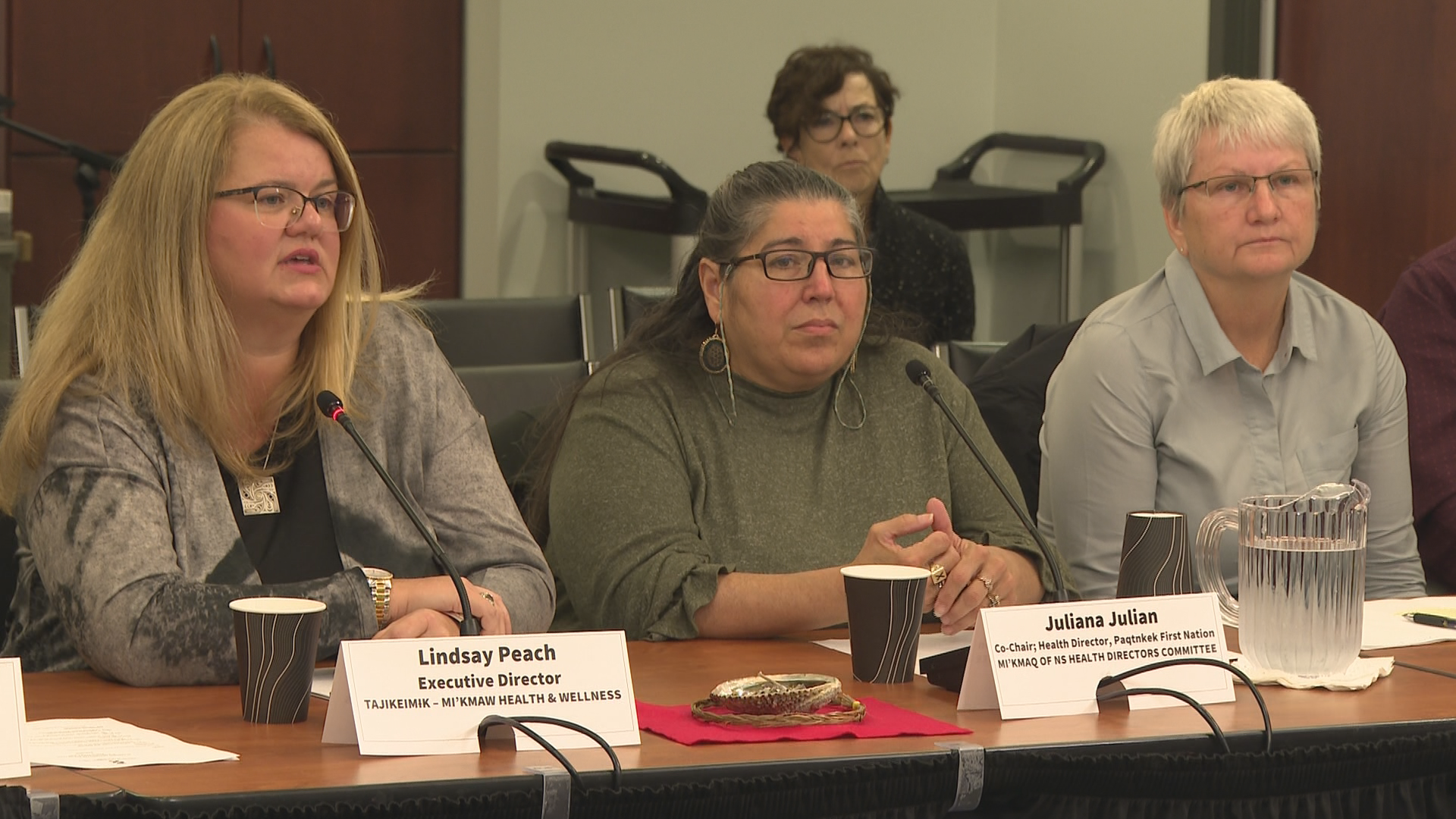Health leaders in Nova Scotia are calling for better mental health support for First Nations communities.

They believe a shift is required to ensure culturally safe and community-based care is delivered.
Several health professionals appeared before a legislative committee in Halifax on Thursday, including Mi’kmaq of Nova Scotia Health Directors Committee co-chair Juliana Julian.
She says there are many gaps in care.
“I don’t even know where to begin when talking about barriers,” says Julian. “Trust would be a big one, language is another one, trauma-informed, culturally safe.”
She was joined by members from Nova Scotia Health, IWK Health, and the Office of Mental Health and Addictions.
“Our Nova Scotia Mi’kmaw Client Linkage Registry health data shows mental health and addiction disorders are high amongst Mi’kmaq compared to Nova Scotians overall,” Julian told the health committee. “And prevalence is increasing at a faster rate for our people.”
She says mental health care needs to be tailored to the needs of First Nations communities in order to improve access.

Get weekly health news
The executive director of Tajikeimɨk, a new organization with a mandate to lead health transformation for Mi’kmaw communities, also joined Julian in the call.
Lindsay Peach says advocates want to see mental health care moved out of emergency rooms and into communities.
“It’s also redesigning the way those services are built and delivered,” Peach says. “Likewise for federally funded health services as well. Really changing those services so they’re community-led.”
She says a mobile crisis team could also provide support.
“It’s really important that the response be community-specific,” Peach says. “A team that’s coming in that knows the community, that knows the individuals, and has that trusted relationship so they can support them in that crisis.”

Julian adds there is often no follow-up after an ER trip.
“My thoughts on it being beneficial stem from having many community members going to the ER and being sent home, not having anybody there … doing wellness checks or anything like that.”
They want community-based care to be a blend of Western medicine and traditional practices. The advocates say there should also be better representation of Indigenous peoples in health care from emergency rooms to leadership.
Provincial health officials say they’re listening.
“It’s true. It’s not working,” says the executive director of the Office of Addictions and Mental Health.
“The safety is not there, the trust is not there,” says Francine Vezina. “Those are things that we have to continue to work on.”
She says all of the ideas are possible, especially if they continue to work together.





Comments
Want to discuss? Please read our Commenting Policy first.